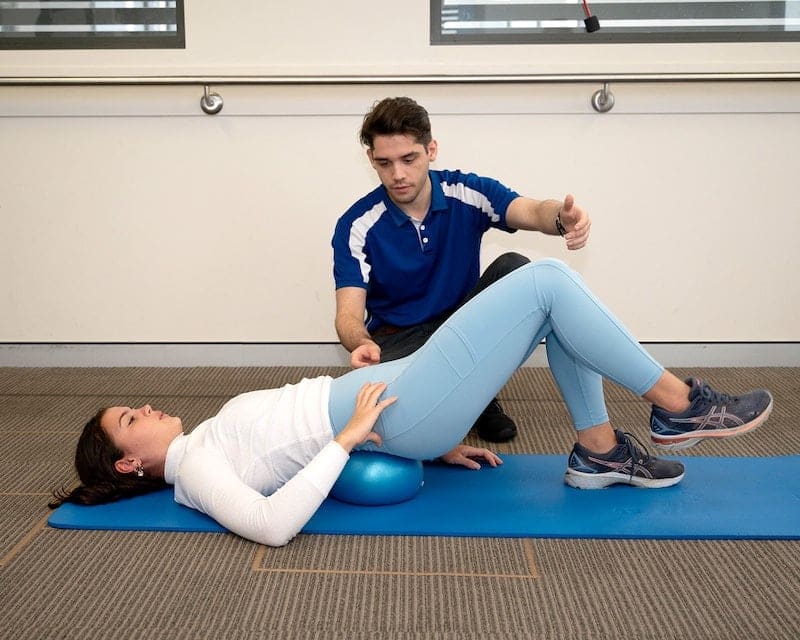June Update
Physiotherapy treatment of jaw clenching
By Graceville Physiotherapist Joni Levine
Jaw clenching is any form of contact between our top and bottom teeth. Over 50% of people will clench their teeth to some extent, usually at night when they are not aware of it. If left untreated, it can lead to grinding and eventual erosion of our teeth enamel. It can also lead to painful and tight jaw muscles, which can then result in headaches and a reduced ability to open our jaw.
One of the main reasons people clench their jaws is due to stress, but any form of increased oral activity (e.g. playing a musical instrument, chewing gum, biting nails) can also lead to jaw clenching.
People may report jaw clicking as well, but this is a separate issue and not necessarily linked to jaw clenching.
Thankfully, there are ways we can manage jaw clenching. Firstly, we identify what the cause of the clenching is and we discuss strategies to reduce this. Next, we do several techniques to relieve muscle tension such as massage and dry needling. This can be directed at any of our four jaw muscles that are often tight due to clenching. We will also look at the muscles at the front and back of the neck, as these muscles can also impact jaw function and clenching. Every patient we see will go home with a list of exercises to do to help reduce muscle tension, with a focus on both short and long term pain relief.
We often find that patients can experience pain relief within 3-4 treatment sessions on a weekly basis, and this is usually all that is required to get on top of their symptoms. Some patients will find that they require follow-up appointments every 4-6 weeks to ensure they are keeping on top of their jaw tension, and other patients may opt to have follow-up appointments during periods of increased stress (e.g. a teacher during exam periods). Each patient is different, and your physiotherapist will be able to discuss your treatment plan specific to your assessment findings and goals.
If patients have ongoing issues, we will refer them to their dentist who can discuss night splinting options to protect the teeth. In severe cases, some patients may require botox injections into the affected muscles to reduce the muscle tension. This is usually organised through dentists or maxillofacial specialists. Most patients will not require botox injections, but we have a good referral network of trusted doctors who we refer to.
Many workplaces emphasise and re-emphasise the importance of lifting properly to protect our health, and despite this, we spend a lot of time retraining lifting.
In summary, there are plenty of things we can do to help you get on top of your jaw clenching. If you have been putting up with jaw clenching and jaw tension, do not delay in booking in to see us. We are here and ready to help!

World Ocean Day is in June
Did you know that a quick swim in the sea, a cold pool, or having a short cold shower/bath is a form of muscular therapy? Cold Water Therapy, or “Cold Immersion Therapy”, can reduce muscle soreness, improve circulation, and help cool down after exercise (1). It is theorised to achieve this through several mechanisms such as temporarily reducing blood flow (vasoconstriction) to sore muscles after exercise.
There is also some evidence that it can boost mood and reduce depressive symptoms in some people. It is thought to have this effect through increasing mood-boosting neurotransmitters such as noradrenalin and dopamine (1).
Cold water therapy can also reduce inflammation in the body, it does this by stimulating the vagus nerve – which controls one of the body’s powerful anti-inflammatory pathways (2).
One of our physiotherapists Will used to enjoy swimming in very cold water when he lived abroad in Sweden for several years. He still enjoys swimming during winter at the beach when he gets the opportunity!
There are some risks associated with cold water immersion. Hypothermia can occur if you are exposed to cold water for too long, and it’s important to warm up gradually with layers of clothing rather than having a hot shower to avoid the phenomenon of “after-drop” which can hasten hypothermia. It’s important to check with your doctor if cold water is appropriate for you, particularly if you have a heart condition.

MOVE BETTER …FEEL BETTER
Most people associate physiotherapy with pain and injury management.
While helping you recover from pain is our specialty, our physios are also able to tailor a maintenence program specifically for you … to keep you feeling strong!
Our clinical exercise classes are focussed on building strength, core stability, mobility, control and posture. Max 4 clients per class. $57 casual or 6 pack for $300. Health Fund rebatable!
If you are currently attending physio and would like a free trial of one of our an individually tailored classes, book in at reception today!
